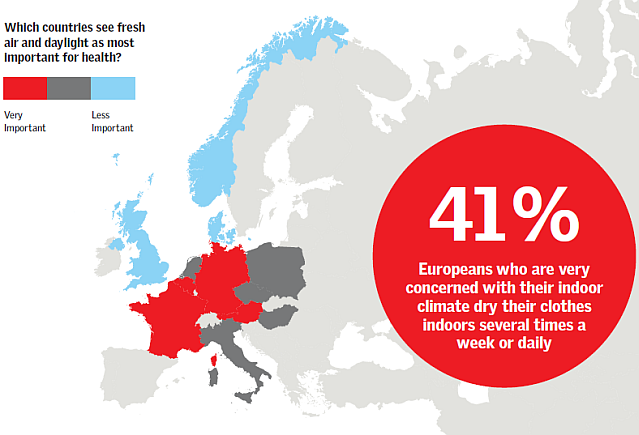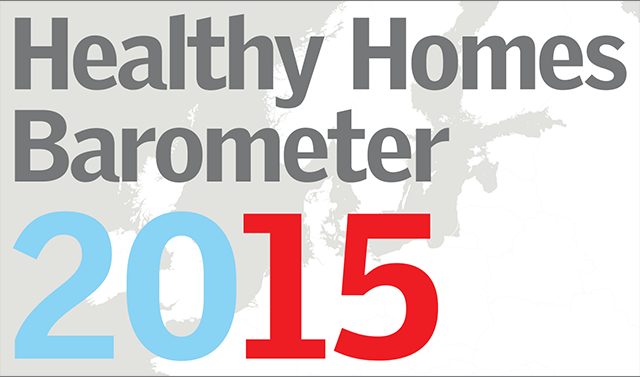
by Michael K. Rasmussen, VELUX Group
Today, we are certain that our homes have a huge impact on our health and wellbeing. We live 90 % of our lives inside buildings. Yet, an estimated 80 million Europeans live in homes that suffer from damp, which almost doubles the risk of developing asthma. Indoor air quality is a major health concern for Europe.
| “There are things we know, and things we do not know” |
We are equally certain that our homes have a huge impact on the future of our planet. Energy used in buildings accounts for 40 % of the total energy consumption by society. Better construction of buildings in the EU would influence the use of half of all extracted materials, and could help us save up to one-third of all water for consumption.
However, we are less certain when it comes to the behaviour and thinking of those actually living their lives inside the buildings, affecting the indoor climate and energy use through their actions, choosing how to – or how not to – improve their homes and what to demand when moving into or building new homes: the European citizens.
Do Europeans think of their homes as a key to being healthy? Do they act according to their beliefs? Do they know what to expect from a healthy home? Can society expect them to demand more energy efficient and environmentally friendly buildings?
| “Europeans value daylight in the home. If they were to choose a new home, 47 % would give highest importance to the amount of daylight. 92 % would give it above average importance…” |
Filling the knowledge gap
Our ambition is to fill this knowledge gap with the Healthy Homes Barometer. We have examined whether European citizens support what experts have long called the buildings of the future: Homes that create healthier and more comfortable lives for their occupants without impacting negatively on the climate and the environment; homes that move us towards a cleaner, healthier and safer world.
This year’s barometer shows that Europeans consider that their homes are of huge importance to their health and wellbeing. However, in general Europeans are far too optimistic when it comes to the actual state of their home indoor climate, thinking that everything is good. They are also far too reluctant to behave according to their beliefs and let in fresh air and daylight.
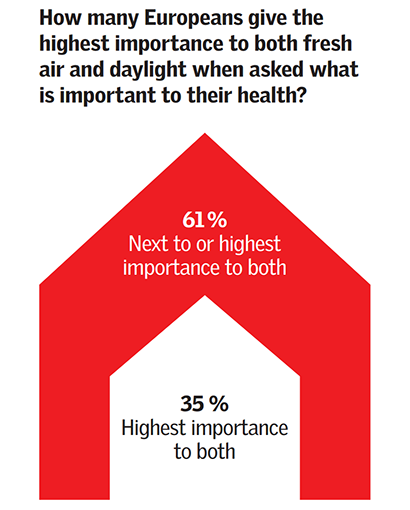 |
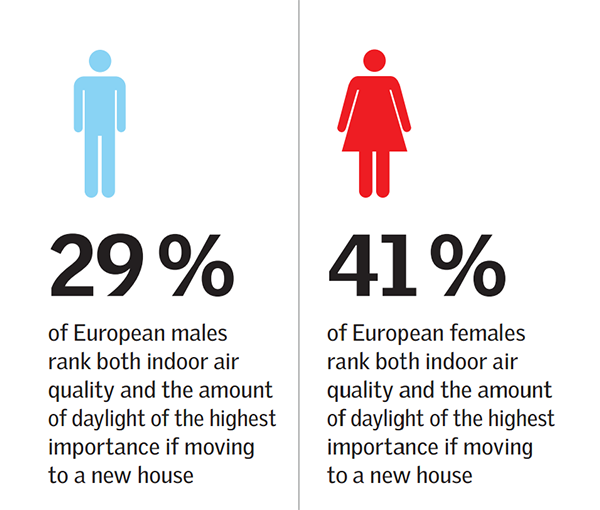 |
We can already expect Europeans to demand healthy and energy efficient building solutions today and, if awareness is raised, even more tomorrow. This is a clear message from the Healthy Homes Barometer 2015, which should inspire everybody concerned with the quality of modern lives indoors, politicians as well as the building industry.
Europeans do not want homes that simply perform well on energy. They want homes that perform well on energy while also providing comfortable surroundings in a healthy life. They want healthy homes. I sincerely hope that the Healthy Homes Barometer will spark a transition, not only in the way buildings are built, but also in the way we think and communicate about our homes and the role they play in modern lives, cities and society at large.
Further information about the Healthy Home Barometer 2015 can be found on VELUX.com.
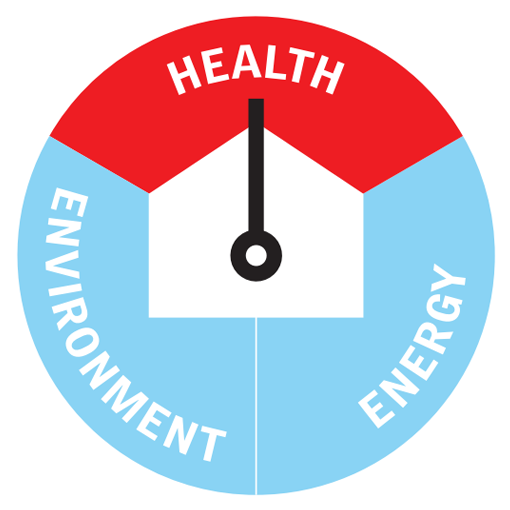 |


